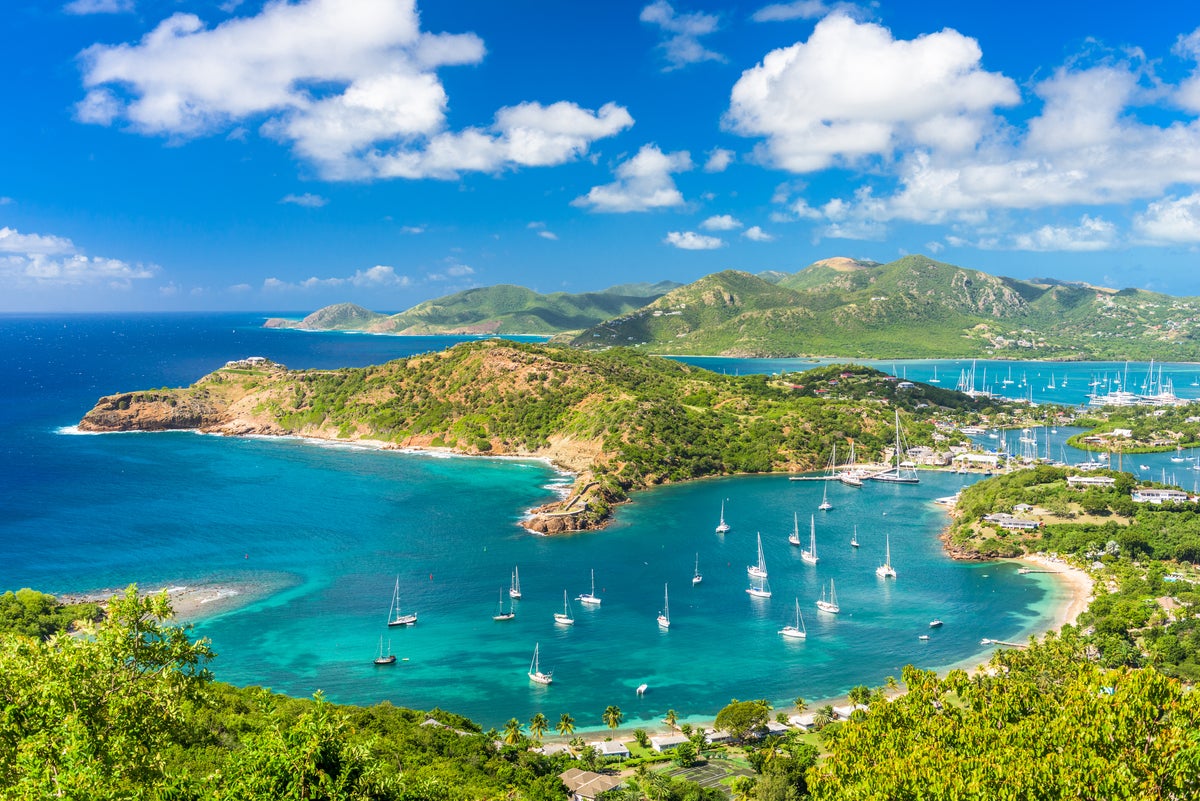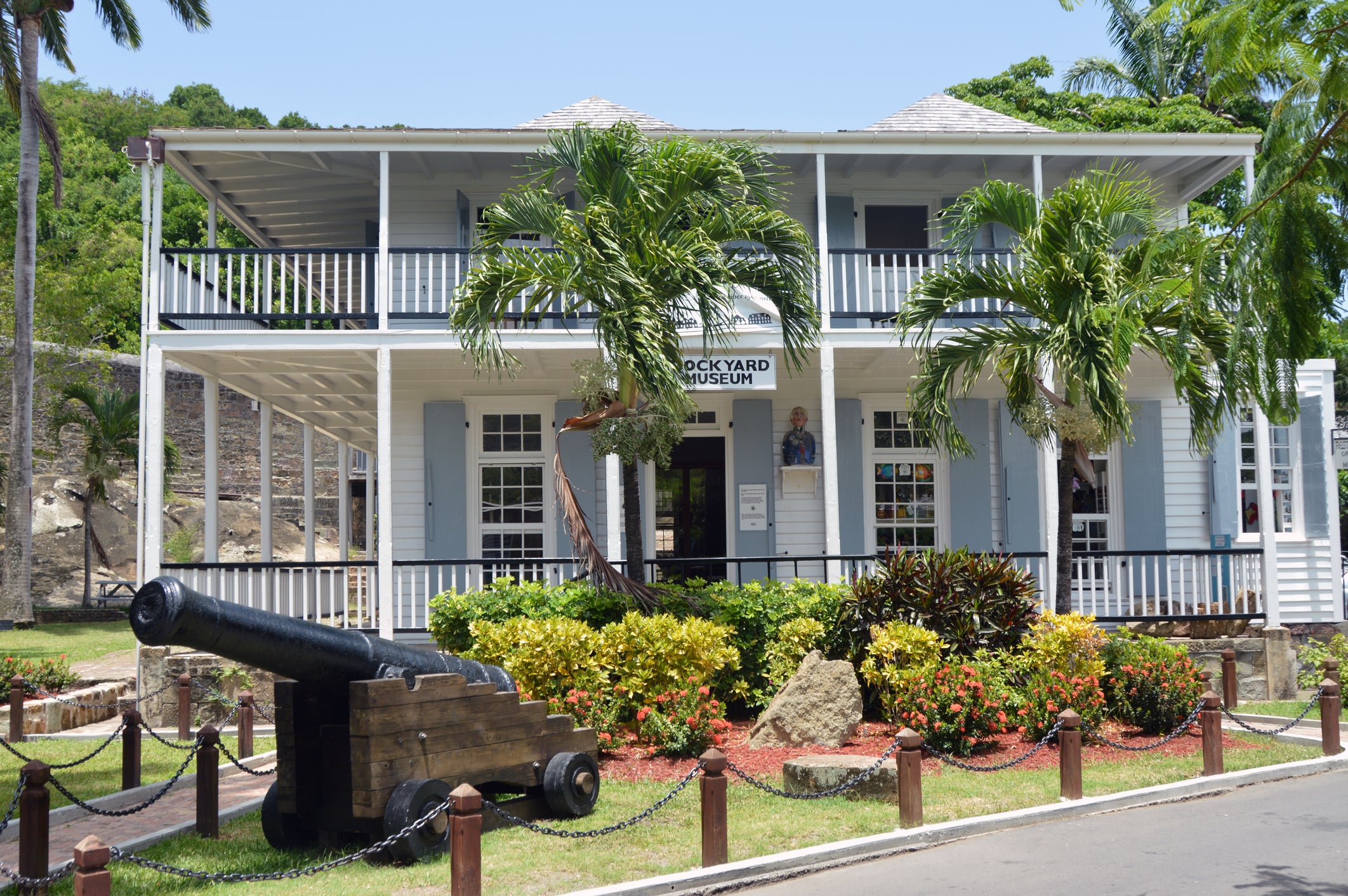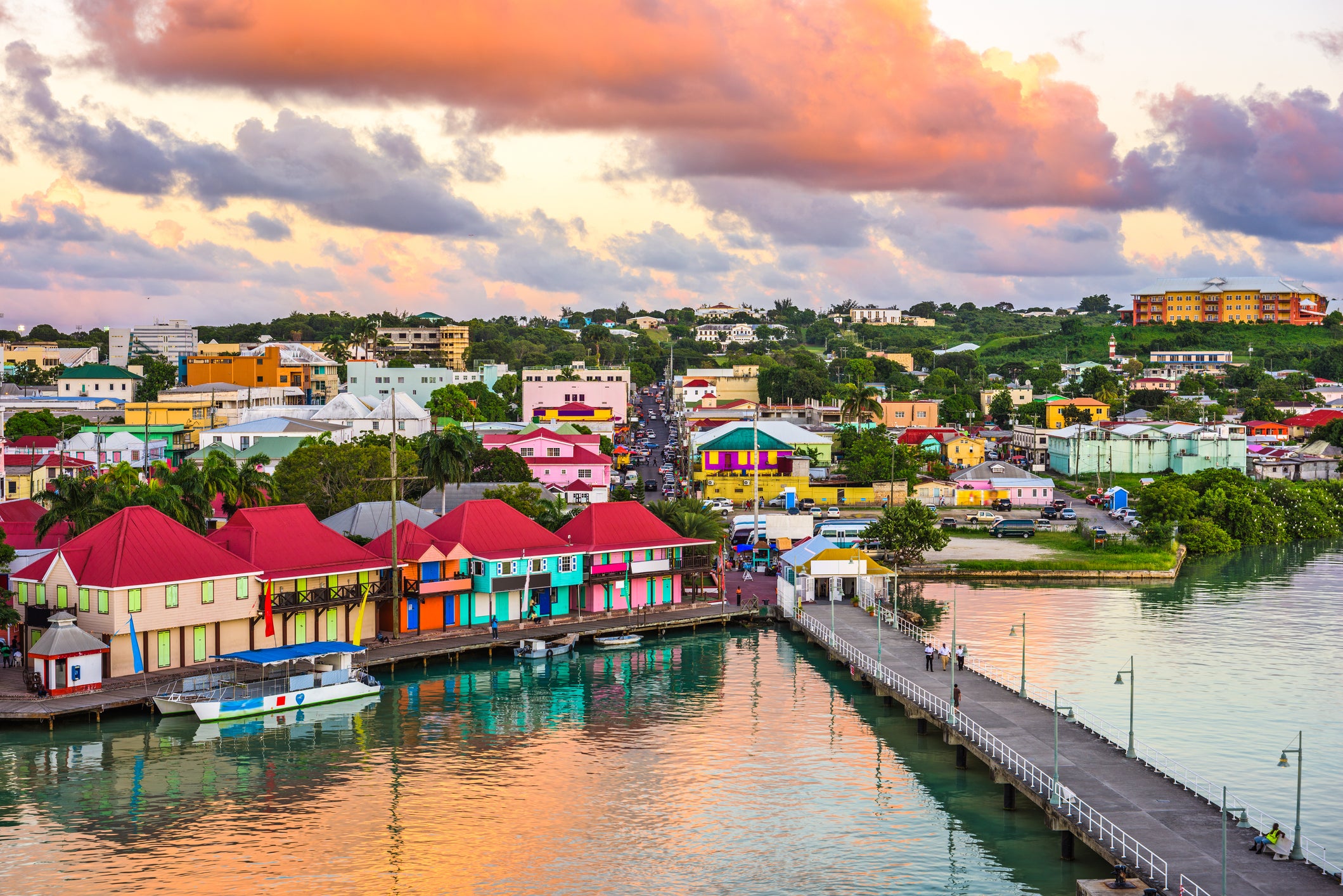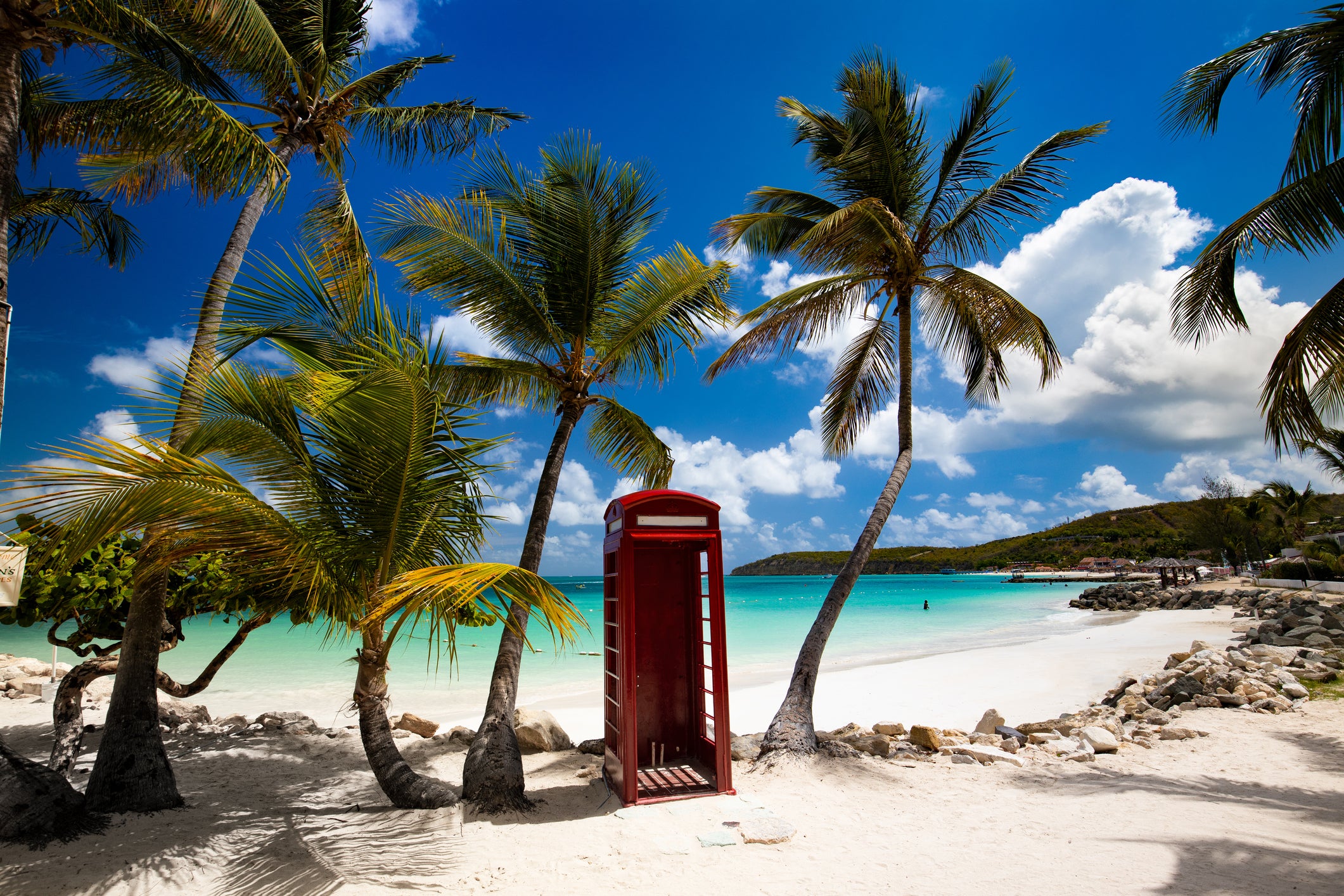
“Land of Sea and Sun” trumpet the car license plates, and that’s exactly what you get in this holiday favourite that’s ideal for an easy-peasy sunshine escape. Antigua might lack the stirring scenery of some of its neighbours, but it’s got loads to offer – not least 365 beaches, an endearing addiction to cricket, sailing and partying, and islanders who are genuinely good company.
Travel restrictions and entry requirements
All Covid 19-related restrictions have been lifted for travellers arriving by air. Cruise passengers must abide by the protocols of their vessel.
If you are visiting Antigua and Barbuda your passport should be valid for six months from the date you arrive. British Passport holders don’t need a visa to visit Antigua and Barbuda.
Best time to go
Antigua is a year-round holiday destination that is busiest from mid-December to around Easter. Officially, the Caribbean hurricane season runs from June to November, with September and October the most likely time for storms.
Read more on Caribbean travel:
- Why Dominica is the remote, nature-packed Caribbean island for the adventurous traveller
- The world’s best beaches for 2023
- Five of the best destinations for remote working while on holiday
Antigua Sailing Week, held in the waters off English Harbour at the end of April, is a lively affair while the high point of the year for Antiguans is carnival in late July.
Top destinations
English Harbour
Allow plenty of time for exploring the World Heritage-listed, wheelchair-accessible Nelson’s Dockyard at English Harbour. This mighty ensemble of Georgian-era naval buildings includes a fine historical museum and a waterfront lined with superyachts. The adjacent national park has over 11 miles of trails, which are included in the day pass entrance fee. To add in a swim, head for the gentle waters of Galleon Beach in Freeman’s Bay.

St John’s
Antigua’s ramshackle capital may get swamped by cruise ship passengers but it does have a characterful bustle. Liveliest on Friday and Saturday, the market is a busy jumble of stalls selling tropical fruit and veg, while further north the hilltop St John’s Cathedral has survived since 1847. Two tourist-orientated quays, Redcliffe and Heritage, offer souvenir shops and refreshment. North of the harbour (transport required), the mighty remnants of the 18th-century Fort St James are woefully neglected, but the adjacent beach and bars are lively at weekends.
Betty’s Hope
History-lovers should make for the thought-provoking ruins of Betty’s Hope sugar plantation, which lies inland near Pares Village. This dates from the 1650s and has two huge windmills. Displays offer an insight into daily life for its 400 slaves and, following emancipation in 1834, labourers. There is a detailed explanation of how sugar and rum is produced, plus information on archaeological projects at the site.
Barbuda
The second largest frigate bird colony in the world is a prime reason to visit Antigua’s flat and arid sister isle, which lies to the north and can be reached with a 15-minute flight or 90-minute ferry crossing. Go in November to February to see the males with their balloon-like red throat-pouches. Accommodation is limited so most visitors make a day trip, taking lunch at a remote outpost of the Nobu restaurant collection on Princess Diana Beach.
Half Moon Bay

You’ll need a car to get to Half Moon Bay, down in the south east corner of the island, but it’s a fun drive and the long, curved beach here is blissfully free of the holiday crowds. Take a picnic – gourmet treats can be picked up in the Epicurean supermarkets in St John’s and Jolly Harbour. If you spot swimmers caked in mud it’s because deposits of this, found at the northeast corner after a scramble over the rocks, are considered beneficial for the skin.
Best things to do
Get out on the water
Sailing lessons are part of the school curriculum in Antigua, and this sunny island is a great place to mess about in boats. Most resorts have boats you can take out, or there are half-day sailing trips available in Falmouth. Tours in a high-performance powerboat, including an island circumnavigation, are popular, and there also gentler, eco-minded excursions with snorkelling and birdwatching.
Zip through the rainforest
Fig Tree Drive, in the south of the island, presents a steep, winding descent through a richly forested landscape with a farm on the east side where Antigua’s sweet black pineapples are cultivated. For some adrenaline thrills, challenge yourself at Antigua Rainforest Zipline Tours, which has an arsenal of 13 ziplines, three aerial walkways, two suspension bridges and a treehouse. Families welcome.
Go fly a kite
Antiguans have a long tradition of flying kites on Easter Monday. The greatest concentration can be seen on the breezy Atlantic coast at Devil’s Bridge near Indian Town Point. Here, a family-friendly festival takes place, with prizes and a “kite hospital” for any accidents. As well as a natural rock bridge, there are also blowholes formed by wave erosion, making this an impressively wild spot visit.

Visit Shirley Heights
Shirley Heights Lookout is a lofty signal station on the south coast, near English Harbour, dating from the 1770s that once was part of Antigua’s naval defences. Now it is home to a long-running Sunday afternoon barbecue and party. This kicks off with steel pan music, then moves onto live bands after sunset. It’s a bit of a tourist scrum and the tunes are international but after a few rum punches everyone’s up and dancing.
Catch some cricket
Cricket is an island obsession and Antigua has had a national team since the 1890s. The biggest matches take place at the Sir Vivian Richards Stadium in North Sound, which was built in 2007 and has room for 10,000 spectators. Village cricket is played every weekend – ask around for the nearest location.
Prop up the beach bars
Liming is the Caribbean version of hanging out, which is best done with a bewitching sea view, some reggae beats and a rum punch (or local Wadadli beer). This is easily achieved on Antigua, where cool beach bars are a specialty – including one near Crab Hill with two red London buses that have somehow ended up here. Other choice spots are Galleon Beach and Pigeon Point Beach, while the long sands at party-loving Dickenson Bay, in the north-west, is the place to go bar-hopping.
Getting around
Nowhere in Antigua is more than a 45-minute drive away, and it is fun to rent a car and go exploring. Rather than pick one up on arrival, arrange for it to be delivered to your hotel for two or three days in the middle of your holiday. Driving is on the left.
Buses serve local needs so it’s easier to book excursions or taxis with the help of your hotel. Agree the fare in advance and clarify if this is quoted in US or East Caribbean dollars.
How to get there
Direct flights from London Gatwick and London Heathrow to VC Bird International Airport take a little under nine hours. Transfers to a hotel take no more than 40 minutes.
Antigua is a useful hub for connecting to other Caribbean islands, including St Barths and the British Virgin Islands. It is also the gateway for Montserrat, which lies 27 miles south-west and is only accessible by air.
St John’s is a popular port of call on Caribbean cruises. For a flight-free option, some lines have sailings that depart from Portsmouth or Southampton. These cross the Atlantic to make a leisurely island-hopping voyage, including a stop in Antigua, that last around 28-35 nights.
Money-saving tip
Package holidays are the most cost-efficient way to visit, with all-inclusive resorts particularly attractive to budget-conscious couples and families. Prices are lower outside of the school holidays, with May to June and September to early December generally cheaper.
FAQs
What’s the weather like?
Warm and inviting year-round, with the driest months from January to March. In winter, pack a jacket or top for the evening.
What time zone is it in?
GMT-4.
What currency do I need?
The East Caribbean dollar (XCD) is pegged to the US dollar at a fixed rate of EC$2.70 to $1. You can also pay in US dollars but you’ll get a slightly better deal if you use local currency. Credit cards are widely accepted, at times with a surcharge, but have some small denomination cash for bars, buses and tips.
What language is spoken?
English.
Are there mosquitos?
Yes, and sandflies, so take some insect repellent.
Read more on the best winter sun hotels







